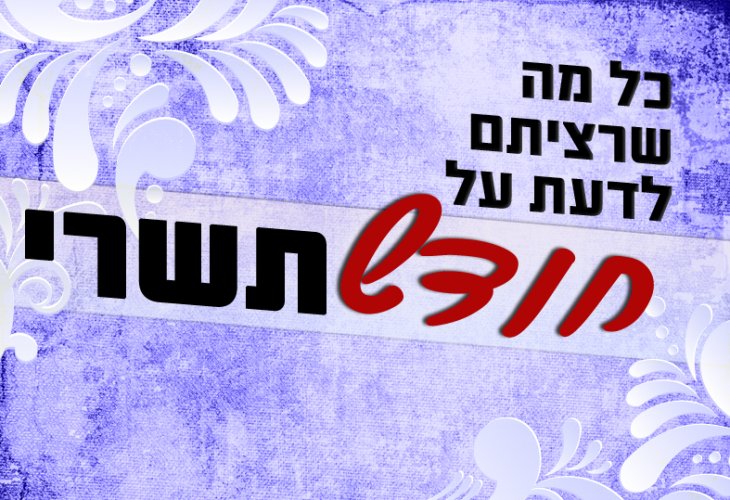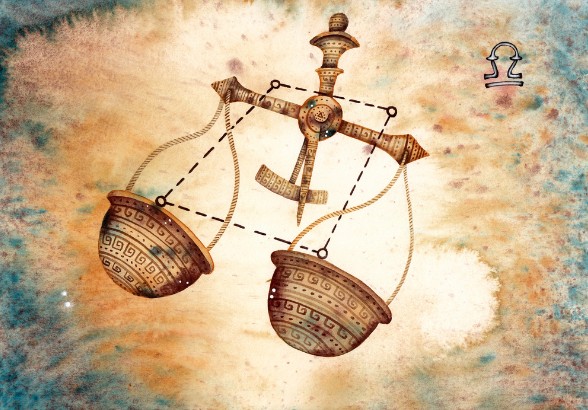Facts in Judaism
Tishrei: A Month of Majesty, Mercy, and New Beginnings
From the blast of the shofar to the joy of Simchat Torah, Tishrei is a sacred gateway to renewal and return

Tishrei, the first month of the Jewish calendar, when we count the months from Creation, and the seventh month when we count from the Exodus, holds unmatched spiritual depth. Although the Torah refers to it as the "seventh month" (Vayikra 23), the prophetic books call it "Yerach Ha'eitanim" (the month of the mighty) (Melachim I 8:2). Some explain that "mighty" refers to the spiritual giants of the world, Avraham, Yitzchak, and Yaakov, who were born and conceived in this month. Others say it refers to the strength of the water channels, as the first rains begin to fall and rivers swell.
The month of Tishrei is filled with holidays and special occasions: Two days of Rosh Hashanah, the Fast of Gedalia, Yom Kippur, the seven days of Sukkot, Hoshana Rabbah, Shemini Atzeret, and Simchat Torah.
The name "Tishre" is Babylonian in origin, and it derives from the word "tashritu," meaning “beginning.” It is linguistically linked to the Arabic "tishreen," which also means the start of the year. The Sages gave the name a deeper dimension: in Aramaic, Tishrei implies "release" and "letting go," which is a symbolic echo of Hashem releasing us from our spiritual debts and granting us merit in the coming year. Others connect the name to "shara, meaning immersion in water, linking it to purification. As Rabbi Akiva said, “Before whom do you purify yourselves? Who purifies you? Your Father in Heaven” (Yoma 85b).
In the ancient agricultural calendar found at Gezer, the month is referred to as "yerach ha'asif" (the month of gathering) because it was the time when people would collect the year's harvest. Tishrei marks the end of the growing season and the beginning of the olive harvest, as the air cools and autumn begins.
While today we observe Rosh Hashanah over two days, during the days of the prophets, it was sometimes celebrated for only one day
On Rosh Hashanah, all of humanity passes before Hashem like sheep before a shepherd. Each soul is judged, and the verdict for the coming year is inscribed (Mishnah Rosh Hashanah 1:2). The month always has 30 days and is marked by this sacred process of judgment, reflection, and renewal.
The Zodiac of Tishrei: Libra – The Scales
The zodiac sign of Tishrei is the scale. This celestial imagery reflects not only the stars’ alignment but also the spiritual atmosphere of the month. The scales symbolize heavenly judgment. In this month, Hashem weighs each person’s merits against their shortcomings.
The scale also hints at the harmony of Creation, which was orchestrated in perfect measure. Some even see in it a reflection of the equinox, the balance between day and night around this time of year, that underscores the spiritual theme of equilibrium and order.
 Libra Zodiac Sign
Libra Zodiac SignTishrei Through the Hassidic Lens: The Cry Beyond Words
Among all the mitzvot of Tishrei, the shofar blasts hold a unique place. Hassidic teachings delve into their essence, not just as a ritual, but as a cry from the soul. The shofar’s sound is simple, unembellished, and raw. It has no melody or rhythm; it comes from the hollow horn of a ram, which represents humility and primal emotion. The shofar is the cry of the heart, untouched by articulation, and it expresses our deepest longing to return to Hashem.
The Baal Shem Tov, founder of the Chassidic movement, offered a powerful parable to illustrate this:
A beloved prince was sent by his father, the king, to explore distant lands and gain wisdom. He was given riches and an entourage, but, indulging in luxury, he squandered it all. Eventually, lost and impoverished in a foreign land, the prince decided to return home. After a long and painful journey, he reached the gates of the palace, but he had forgotten his native language. When the guards mocked him and denied entry, the prince cried out, wordlessly, with all his might. The king, hearing his son’s familiar voice, ran to embrace him and welcomed him back with love.
We, too, are children of Hashem. When we enter the physical world, we often drift far from our Divine source. On Rosh Hashanah, the shofar is our wordless cry. It is our declaration that we want to return, even if we can’t find the right words.
The Rebbes of Chabad would emphasize that the power of the shofar lies not in the content of the cry, but in the cry itself, the pure and deep cry that emerges from the soul. This cry leads to teshuvah (repentance), the commitment to renew our dedication to Torah and mitzvot for the year ahead.

